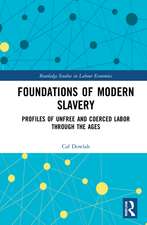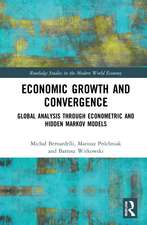Roman Inequality: Affluent Slaves, Businesswomen, Legal Fictions
Autor Edward E. Cohenen Limba Engleză Hardback – 26 iul 2023
Preț: 341.62 lei
Preț vechi: 468.91 lei
-27% Nou
Puncte Express: 512
Preț estimativ în valută:
65.37€ • 68.50$ • 54.04£
65.37€ • 68.50$ • 54.04£
Carte disponibilă
Livrare economică 10-17 martie
Livrare express 07-13 martie pentru 89.47 lei
Preluare comenzi: 021 569.72.76
Specificații
ISBN-13: 9780197687345
ISBN-10: 0197687342
Pagini: 280
Dimensiuni: 163 x 237 x 23 mm
Greutate: 0.55 kg
Editura: Oxford University Press
Colecția OUP USA
Locul publicării:New York, United States
ISBN-10: 0197687342
Pagini: 280
Dimensiuni: 163 x 237 x 23 mm
Greutate: 0.55 kg
Editura: Oxford University Press
Colecția OUP USA
Locul publicării:New York, United States
Recenzii
This book is phenomenal, and delightfully well-documented
A must-read for any social and economic and legal historian of antiquity. Both the general overview of the subject matter and the points of detail are innovative and important.
Engaging with one of the most intriguing aspects of the way the Romans dealt with entrepreneurial matters, this book is a very illuminating piece of scholarship, proof that people with actual business experience can contribute decisively to the field of economic history.
It is important to point out that, while this review may well present supporters of Classics for All with a new and, frankly, astonishing aspect of the ancient world, the importance of this book for academics, which cannot be overestimated, lies in the expertise with which C. selects from, and the crystal clarity with which he analyses, the mountains of evidence that the jurists and inscriptions have left on the topic. It all adds up to a fascinating and extremely important contribution to our understanding of the nature of slavery in the Roman world.
Roman Inequality is an important analysis of the law surrounding slavery and a convincing explanation of the economic dominance of enslaved, freed, and, in some cases, female workers... The book advances our understanding of the real--world implications of Roman law and provides new insights that have much to contribute across multiple fields of study.
A must-read for any social and economic and legal historian of antiquity. Both the general overview of the subject matter and the points of detail are innovative and important.
Engaging with one of the most intriguing aspects of the way the Romans dealt with entrepreneurial matters, this book is a very illuminating piece of scholarship, proof that people with actual business experience can contribute decisively to the field of economic history.
It is important to point out that, while this review may well present supporters of Classics for All with a new and, frankly, astonishing aspect of the ancient world, the importance of this book for academics, which cannot be overestimated, lies in the expertise with which C. selects from, and the crystal clarity with which he analyses, the mountains of evidence that the jurists and inscriptions have left on the topic. It all adds up to a fascinating and extremely important contribution to our understanding of the nature of slavery in the Roman world.
Roman Inequality is an important analysis of the law surrounding slavery and a convincing explanation of the economic dominance of enslaved, freed, and, in some cases, female workers... The book advances our understanding of the real--world implications of Roman law and provides new insights that have much to contribute across multiple fields of study.
Notă biografică
Edward E. Cohen is Professor of Classics and Ancient History (Adjunct) at the University of Pennsylvania. He specializes in the economic and legal history of ancient Greece and Rome, and is the author of many books and articles on this subject, including Athenian Prostitution: The Business of Sex (also Oxford University Press).























